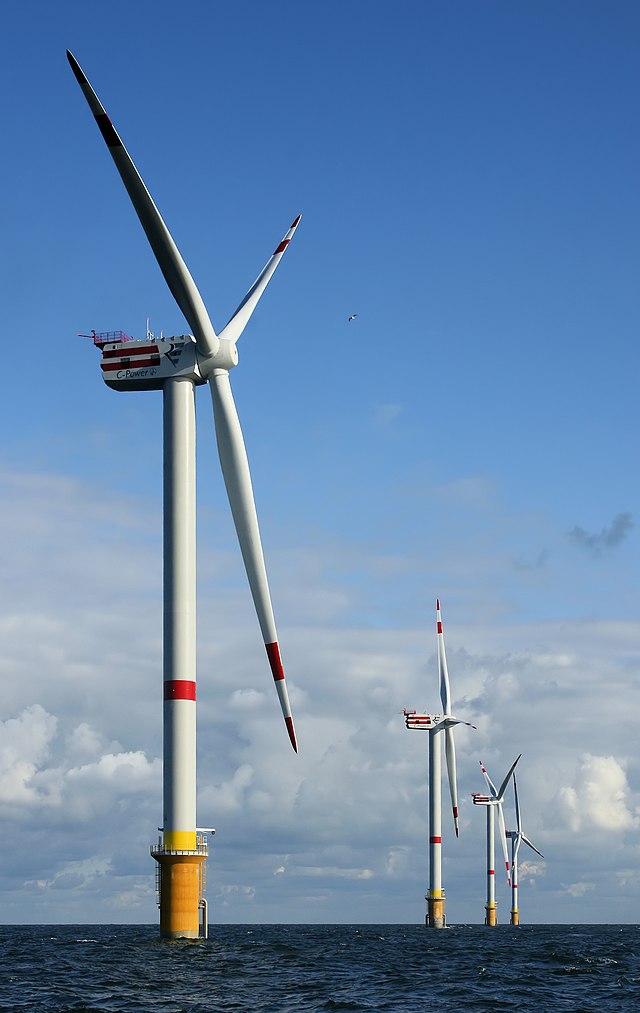Natural resource
naturally occurring resource, including mineral resources (e.g. metal ores), mined fossil fuels (e.g. petroleum), water resources (e.g. lakes and groundwater), water energy resources, timber, arable land, game (e.g. deer), fish in water bodies, etc. From Wikipedia, the free encyclopedia
Remove ads
A natural resource is what people can use from the natural environment. Examples of natural resources are air, water, wood, oil, wind energy, natural gas, iron, mineral and coal.

The dividing line between natural resources and man-made resources is not clear-cut. Hydro-electric energy is not a natural resource because people use turbines and generators to convert the energy of moving water to electric current. Petroleum and ores are natural, but need to be changed in some way to make them into usable refined oil and metals. Atomic energy comes from metallic nuclear fuel, like fissile uranium and plutonium, but rocks need technical work to make them into these nuclear fuels.
Remove ads
Supply
We often say there are two sorts of natural resources: renewable resources and non-renewable resources.
- A renewable resource is one that can be used again and again. For example, soil, sunlight and water are renewable resources. However, in some circumstances, even water is not renewable easily. Wood is a renewable resource, but it takes time to renew, and in some places, people use the land for something else. Soil, if it blows away, is not easy to renew.
- A non-renewable resource is a resource that does not grow and come back, or a resource that would take a very long time to come back. For example, coal is a non-renewable resource. When we use coal, there is less coal afterward. The non-renewable resource can be used directly (for example, burning oil to cook), or we can find a renewable resource to use (for example, using wind energy to make electricity to cook).

Most natural resources are limited. This means they will eventually run out. A perpetual resource has a never-ending supply. Some examples of effectively perpetual resources include solar energy, tidal energy, and wind energy.[1] They are perpetual in effect, although absolutely they do have a limit. There may be a practical limit to how much can be taken in a given day or year, but that amount can be taken again next day or next year (though not forever).
Non-perpetual resources include fossil fuels such as petroleum, coal, etc.[1] They have a limit of usage, and are running out. Some things influencing the supply of resources include whether it is able to be recycled, and whether there are suitable substitutes for the material. Non-renewable resources cannot be recycled. For example, fossil fuels cannot be recycled.
Remove ads
Demand
The demand for resources can change with new technology, new needs, and new economics (e.g., changes in cost of the resources). Some material can go completely out of use, if people do not want it anymore. Demand of many natural resources is very high, but availability of some, such as precious metals, is very low.
Availability
Different places have different natural resources. When people do not have a certain resource they need, they can either replace it with another resource, or trade with another country to get the resource. People have sometimes fought to have them (for example, spices, water,[2] arable farmland, gold, or petroleum).
When people do not have some resources, their quality of life can get lower. So, people protect resources. When they can not get clean water, people may become ill; if there is not enough wood, trees will be cut and the forest will disappear over time (deforestation); if there are not enough fish in a sea, people can die of starvation. Renewable resources include crops, wind, hydroelectric power, fish, and sunlight Many people carefully save their natural resources so that others can use them in the future.
References
Other websites
Wikiwand - on
Seamless Wikipedia browsing. On steroids.
Remove ads
